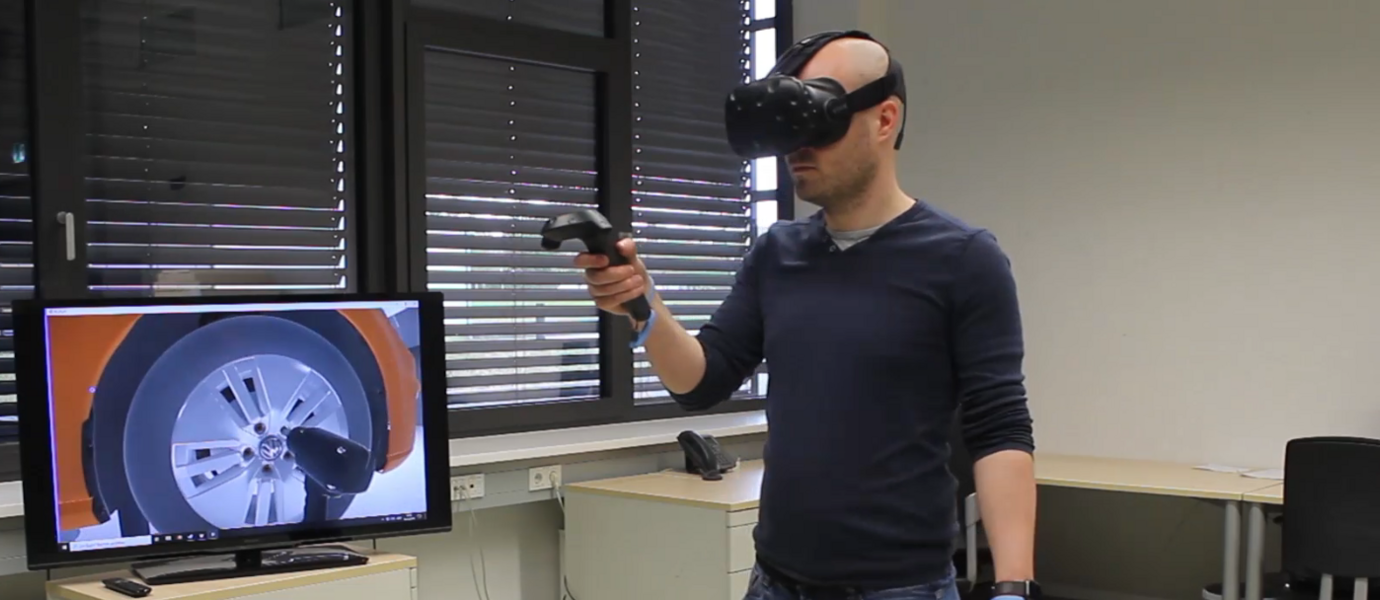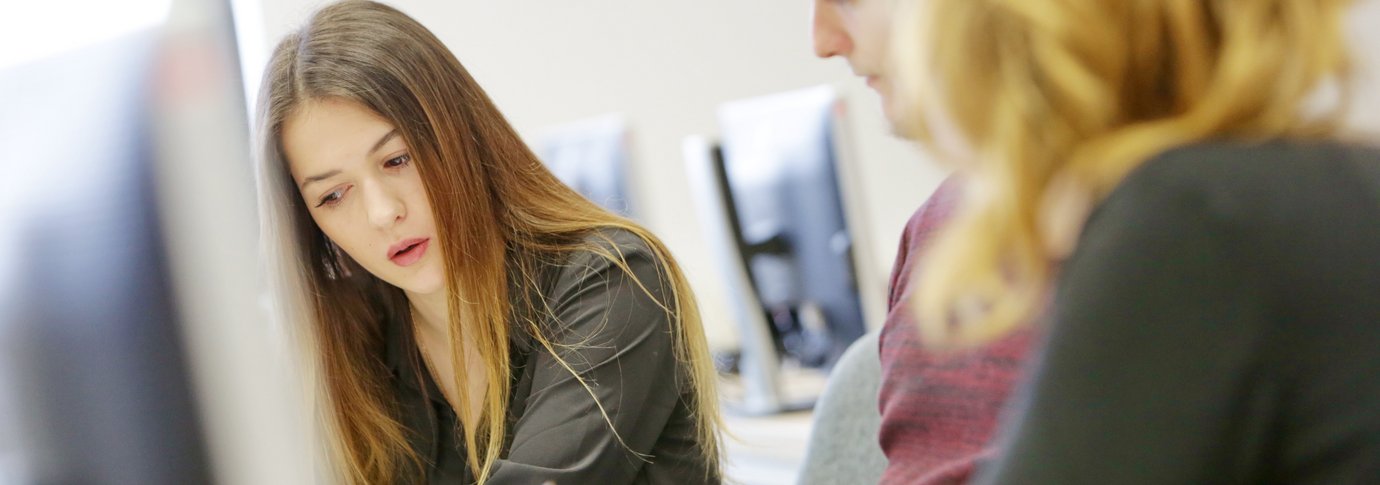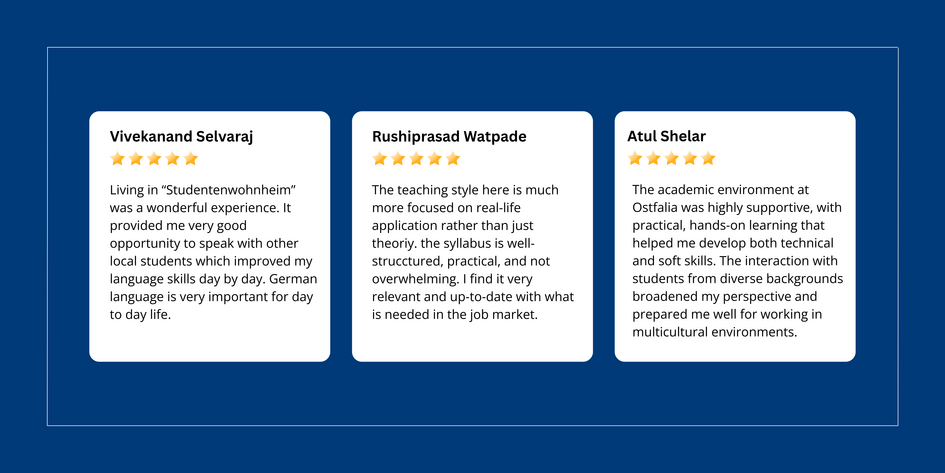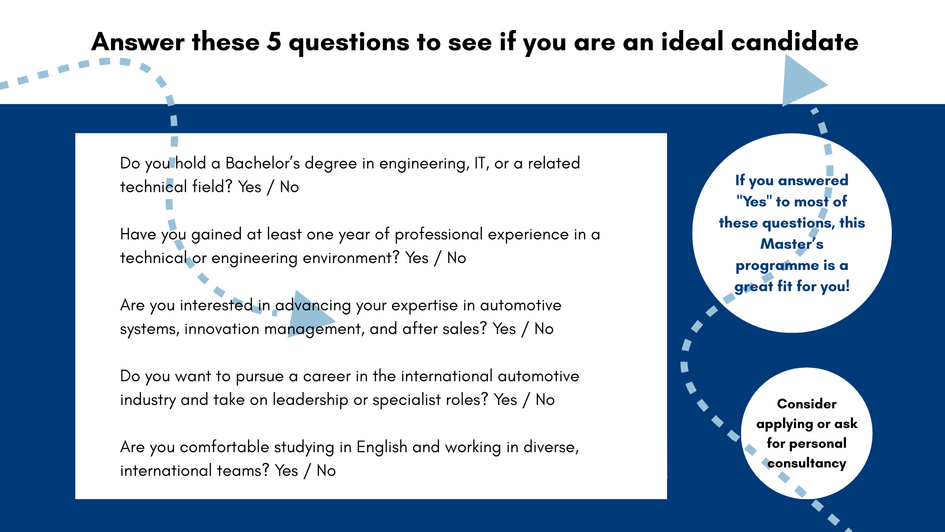Automotive Service Technology and Processes
Accelerate Your Global Career - ASTP Master's Programme
Choosing the right Master’s programme is a key step toward building a successful international career.
The Master of Engineering in Automotive Service Technology and Processes (ASTP) combines technical excellence with global relevance:
Specialising in after-sales and service, this English-taught programme provides deep insights into service systems, innovation management, and cross-cultural teamwork.
Its impact reaches far beyond automotive, offering career opportunities across global industries.
Get ready to drive your career forward with ASTP.
Facts at a glance
Apply now!
We are looking foward to welcoming you to our Master's Programme
Get the Guide and Start Application (opens in a new window), (not accessible)What makes ASTP unique
- After-sales expertise – the key driver of industry revenue
- Industry driven curriculum - hands-on project-based learning
- International learning focus with students from around the world
- Exclusive small classes limited to 25 students for personal support
- Excellent career outlook through projects and an integrated internship
After-sales services generate a significant share of revenue for vehicle manufacturers – and for many other companies across various industries. The demand for qualified experts continues to grow. The Master’s programme in Automotive Service Technology and Processes (ASTP) offers a unique specialisation in Europe that combines technical expertise, process understanding, and customer focus.
What does the after-sales specialisation in ASTP mean? Explore this short fact sheet. (PDF, 43.40 KB) (opens in a new window), (not accessible)
What you’ll gain from ASTP
Your cookie settings have blocked this video.
Where Service Expertise Meets Global Opportunity
ASTP is designed for future professionals who want more than a traditional engineering degree.
The programme combines advanced technical knowledge with service innovation, management skills, and an international learning environment.
With its strong focus on after-sales and service, ASTP unlocks career paths across industries worldwide.
Based in the automotive industry - applicable to many other business areas
Career opportunities
Industries where our graduates work
Agricultural products and services
Architecture
Automation technology
Automotive manufacturer
Automotive supplier
Auditing firms
Construction and construction machinery
Construction industry
Consulting
Electronic components and solutions
Electronics
Engineering
Engineering services
Energy sector
Healthcare sector
Home appliance manufacturer
Infrastructure
IT
Joining technology
Logistics
Mechanical engineering
Metal processing
Mining machinery
Precision components
Precision engineering
Precision mechanics
Railway technology
Supply chain management
Telecommunications
Transport
Water treatment
Companies hiring our graduates
A3Ds
Accenture Services
Alstom
BMW
BOMAG GmbH
Bosch
Capgemini
CEVA Logistics
Continental
Daimler Truck
De Nora
Deloitte
Edag
Ericsson
Essity
ETO
Evomotiv
Expleo
Gewo Feinmechanik
Hilti
Hyundai
Lear
MAN
Maxion Wheels
Mercedes Benz
mine&make
Minebea
Molex
Optimas Solutions
PowerCo
Roos Vehicle Logistics
Simon
Trumpf
Vitskar Agro
Volkswagen
Wassermann
Witzenmann
Positions held by our graduates
Advanced Product Planner
Aircraft Quality Engineer
Automotive Projektmanagement
Beschaffer IT Einkauf
Business Process Expert SAP
Commodity Buyer
Configuration Manager
Consultant
Consultant Process and Project Management
Controller
Customer Quality Manager
Dealer Network Representation and Retail Digitalization
Entwicklungsingenieur
Expert Planning and Project Management
Global Supply Chain Manager
Innovation and Business Development Analyst
Lead Error Management
Logistics Engineer
Logistics Specialist
Logistikplaner
Mechanical Engineer
Mess Ingenieur
Procurement Operations Analyst
Product Cost Engineer
Product Management
Product Engineer
Project Manager
Project Quality Engineer
Purchasing Quality Assurance Manager
Quality Engineer
Quality Expert Cell Production Processes
Quality Specialist Navigation
SAP Technical Release Manager
Scrum Master
Senior Consultant
Senior Consultant Cyber Emerging Technology
Supply Chain Manager
Testmanager
First-hand experiences
Curious about what it's really like to study the Master of Engineering in Automotive Service Technology and Processes (ASTP) at Ostfalia, live in Germany, do an internship, or start a career here? In this section, you'll find first-hand experiences full of insights, cultural impressions, and practical tips for your own path.
Adapting, learning, achieving – my student life in Wolfsburg
I am glad to share my experiences as an ASTP student and as someone who has been living, studying, and working in Germany since September 2022.
Studying in Germany:
My master’s program, Automotive Service Technology and Processes (ASTP), is very practical and industry oriented, especially in the field of logistics. The teaching style here is much more focused on real-life application rather than just theory. The syllabus is well-structured, practical, and not overwhelming. I find it very relevant and up-to-date with what is needed in the job market. The professors encourage us to work on real projects, which makes the learning both interesting and directly useful for future work.
Living in Germany:
Adapting to life in Germany was a challenge at first, especially because of the cold climate, which was very different from my hometown in India. However, I have always enjoyed colder weather, and over time, I found myself adjusting quite well. Now, after almost three years, I truly appreciate the high quality of life here from public infrastructure to food safety and environmental standards. People here are generally very helpful and open, which made settling in easier for me.
Working in Germany:
I have gained over 21 months of work experience through internships and working student roles at companies like Bosch, Audi, and in logistics. These roles gave me deep insights into German working culture: leadership, teamwork, punctuality, and use of advanced technology. My colleagues have always supported me in improving my German language skills and understanding the working style here.
One recommendation I have is to keep academic programs updated regularly at least every two or three years so that students continue to receive the latest industry-relevant knowledge. For those planning to work here, focusing on improving their German language skills is very important. While the current job market is a bit challenging, with persistence and the right skills, opportunities are definitely there.
Overall:
I am very happy with my decision to come to Germany. I have learned so much, not just academically or professionally, but also personally. The people are kind, the environment is supportive, and the quality of both education and life is excellent. I hope my experience will be helpful for other students considering this path.
Rushiprasad Watpade
5 years – living, learning and working in Germany
Here is my perspective….
Coming to Germany- As a child I was really fassinated by cars and machines. It made to pick Mechanical Engineering for my Bachelors Degree in India. During my Bachelor’s degree, I decided to pursue masters only in Germany as Germany is big boss of engineering and atumotive sector especially making wonderful cars with reputed companies like VW, Mercedes, BMW, Porsche, Audi,……After my graduation I accquired some experience in automotive sector and as i wish I got admited in ASTP program. Came to germany for winter 2020.
ASTP- Prgram has diverse modules like Project Management, Logistics, Diagnosis and driver assistance system very relevant to both operational and technical roles in automotive sector. Unfortunately we got stuck with covid pandemic. All our classes were taken online. We didn’t have opportunity to exeperience the personal class room lectures. That was the only regrett.
Living in Germany- I was living in Studente Wohnheim. Was wonderful experience with other fellow students there. Diversed people talking about different cultures and living together. Other than that German lnguage is very important for day to day life which was little difficult for me at the beginning but the whonheim provided me very good opportunity to speak with other local students which improved my language skills day by day. Now after almost 5 years in Germany I feel comfortable with language and like the culture. I learnt alot about German culture and visited many european countries which was also one of my bucket list😀
Working- Wokring in germany is great. Has very good work life balance and very good pay. Diversity plays majore role in working environement as well brings fresh and out of the box perspective
Vivekanand Selvaraj
Why ASTP was the right choice for my future
I would be more than happy to contribute to “First Hand Experiences”.
My experience in Germany as part of the ASTP program at Ostfalia has been a significant chapter in both my academic and professional journey.
Studying in Germany was a truly enriching experience for me. The academic environment at Ostfalia was highly supportive, with practical, hands-on learning that helped me develop both technical and soft skills. The international exposure and interaction with students from diverse backgrounds broadened my perspective and prepared me well for working in multicultural environments.
Living in Germany was equally memorable. While there were initial challenges in adapting to a new culture and language, I found the experience deeply rewarding. The welcoming nature of the community, the efficiency of daily life, and the balance between work and leisure made it a great place to live and grow. Exploring different cities, experiencing local traditions, and even tackling the occasional bureaucratic hurdle all became part of a valuable learning curve.
Professionally, the ASTP program gave me a solid foundation to enter the job market with confidence. The industry-relevant curriculum, along with opportunities for internships and networking, made a real difference in shaping my career. The skills I acquired have continued to support me in my current role, and I often reflect on my time in Germany as a key factor in my growth.
Atul Shelar
How ASTP shaped my career and life in Germany
The ASTP program at Ostfalia has been a truly transformative chapter in my life. It not only deepened my technical understanding of automotive service processes but also taught me how to connect those concepts with real-world industrial practices. Through the program, I gained the confidence and foundation to start my professional journey with Continental AG — first as a student and later as a Customer Service Engineer.
Coming to Germany was not just about education; it was a journey of adaptation, growth, and cultural learning. From navigating student life and managing everyday challenges, to discovering the joy of teamwork in a multicultural environment — every step shaped me both professionally and personally.
I would be delighted to contribute to this project and offer my insights to prospective students — especially those curious about studying, living, and working in Germany after the ASTP course. It’s a wonderful opportunity to give something back to a program that has played such a big role in shaping my career path.
Kartik Anghan
Studying in Germany: lessons, life, and advice
ASTP interview with Kundan Shinde
1. Kundan, what do you wish you had known before coming to Germany?
“I wish I had known how important it is to learn German and at least have a B1 level of certification, ensuring my day-to-day life becomes easy!”
2. Where did you live in Wolfsburg, and what was your experience like?
“I lived near the Wolfsburg Campus building at Neuland, sharing an apartment with 2 international students! It was an amazing experience as I learned about different cultures and was also able to improve my German speaking skills while speaking German with my roommates.”
3. How would you describe the ASTP Master’s programme?
“The course is a blend of both technical and management subjects, combining an in-depth knowledge of the best of both fields. ”
4. Do you plan to stay in Germany after graduation?
“Yes, absolutely, I would love to stay in Germany after my graduation for at least 10 years.”
5. What advice would you give to future students?
“My advice to future students would be to at least have a B1-level German certification, and also look for working student opportunities early on in the course.”
About ASTP: "ASTP’s integration of advanced coursework and a compulsory industry internship gave me both in-depth knowledge and real-world experience, preparing me to excel in the automotive sector."
More than a degree
The ASTP Master’s programme at Ostfalia University combines the expertise of leading academics and industry professionals to strengthen the technical, managerial and strategic pillars of modern after-sales.
Creating your future with our excellence in shaping service innovation across industries.
“Technology is important — but people make the difference.”
— Prof. Dr. Kai Wundram, Programme Director, ASTP Master’s Degree
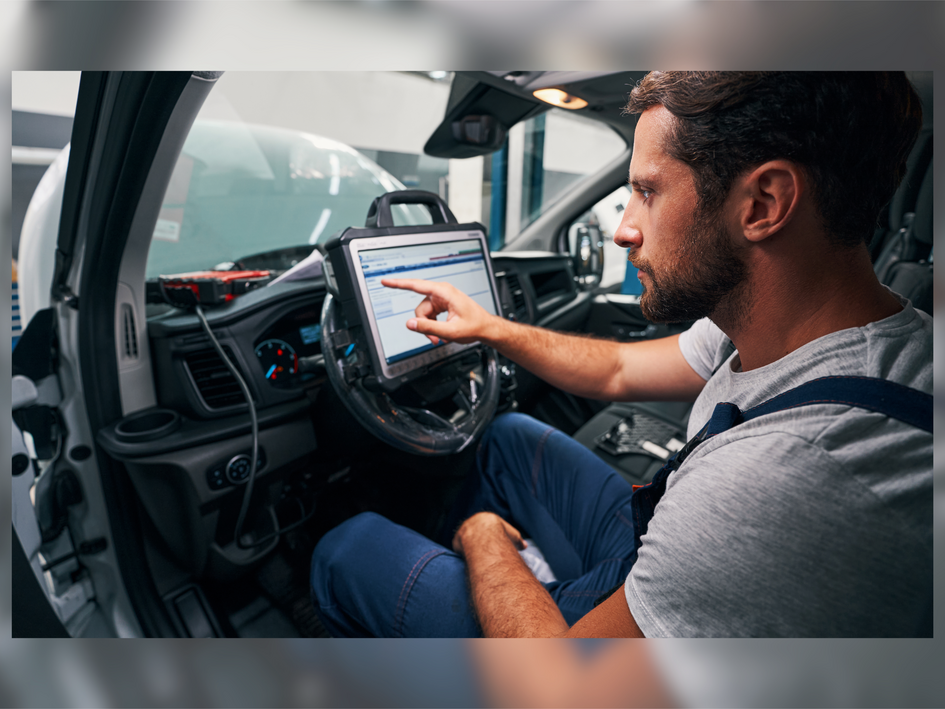
Is this master’s programme right for you?
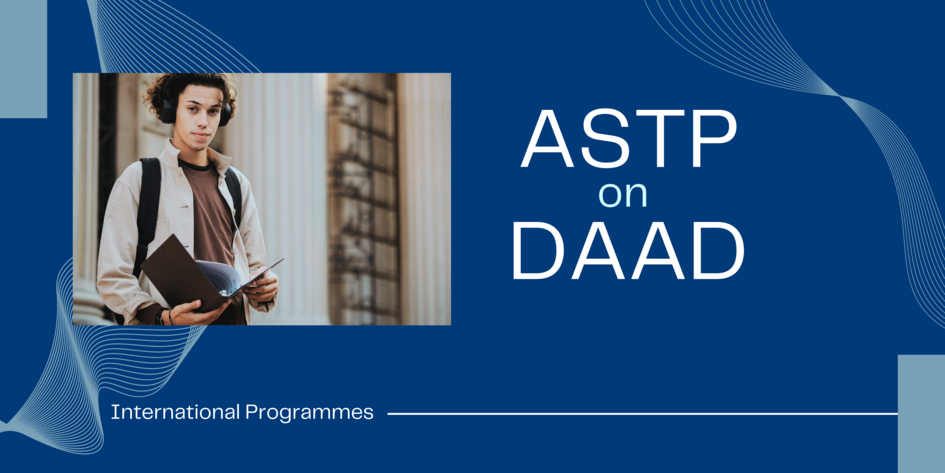
Discover ASTP on DAAD International Programmes — and explore funding options. Click here (external link, opens in a new window).
FAQ
What does the after-sales specialisation in ASTP mean?
The term after-sales is often associated with spare parts, repairs, and customer service. But after-sales is so much more: It is the area where customer relationships are maintained, brand loyalty is secured, and long-term value is created. Modern after-sales management connects technology, data, and customer experience — turning service into a strategic advantage across industries. The after-sales specialisation in the Master of Engineering in Automotive Service Technology and Processes (ASTP) at Ostfalia University prepares students to take on these challenges. While the programme focuses on the automotive industry, the methods and concepts taught are applicable to many other sectors — including transport, logistics, manufacturing, consulting, telecommunications, and IT. Students learn how to reduce warranty and quality costs, improve customer satisfaction, and design predictive maintenance and service strategies. Beyond the classroom, the ASTP programme encourages students to explore digital customer interfaces, connected services, and cross-industry service innovations. This holistic approach equips graduates with the skills to design and lead intelligent, data-driven service systems — in automotive and across industries.
Is the programme taught in English or German?
This Master’s programme is taught entirely in English. In addition, ASTP students can join a free German language course designed exclusively for our Master’s cohort.
Do I need German language skills to apply or to complete this Master’s programme?
All courses and examinations are conducted in English. Proof of at least A1 German proficiency is required at the time of application, and A2 level is expected at the start of the programme. Students are expected to reach B1 level by the third semester, as this is necessary to complete the mandatory internship in a German company. This ensures that students can manage everyday situations and work effectively during their practical training. A free German course is offered as part of the programme.
Is professional work experience mandatory for admission?
A minimum of one year of practical experience in a technical field (based on full-time employment of 35 hours per week; shorter durations may be accepted for positions with higher weekly hours – please contact us).
How long does the programme take and when does it start?
It is a full-time programme with a standard study duration of 3 semesters (90 ECTS credits). The programme usually starts in the winter semester.
Where can I find detailed information about the programme?
Detailed information about the ASTP-programme can be found in the module handbook (PDF, 641.88 KB) (opens in a new window), (not accessible). An overview about the semesters and modules in a short version can be found in the curriculum (PDF, 68.07 KB) (opens in a new window), (not accessible). And there is even more information in the “Download center” at the bottom of this site.
Can I apply as an international student?
Of course, the programme is open to applicants from all countries. International students are warmly welcome and encouraged to apply. At Ostfalia, we offer dedicated services for international students to help them settle in smoothly and feel at home.
What are the admission requirements for this Master’s programme?
The admission requirements are part of the official webseite of ASTP: Master Automotive Service Technology (M.Eng.) | Ostfalia - Ostfalia University of Applied Sciences (external link, opens in a new window)
For full details on admission requirements, please refer to the official admission regulations (PDF, 388.69 KB) (opens in a new window), (not accessible).
Are there tuition fees?
Yes, there is a one-time registration fee and tuition fees per semester. The current fee structure is published on the ASTP-Ostfalia website: https://www.ostfalia.de/en/f/master/automotive-service-technology-and-processes (external link, opens in a new window).
Who can I contact if I need personal consultation or advice before applying?
For personal consultation or questions about the programme, admission, or application process, you can contact the study programme coordinator: astp(at)ostfalia.de (opens your email program), +49 5361 8922 21710.
Office hours: Monday to Friday, 9:00 AM – 12:00 PM (CET).
How and when can I apply?
The next intake for our Master’s programme will begin in the upcoming winter semester. Applications are usually accepted until mid-June. You will soon be able to submit your application via the Ostfalia portal. While the portal is currently closed, please don’t hesitate to reach out to us at astp@ostfalia.de if you have any questions about the programme or your application. We are happy to help!
What are the living costs in Germany while pursuing a master’s degree?
Estimated Living and Study Costs for ASTP Master (18 months):
- Study fees (3 installments): €15,100
ASTP programme tuition fee - Student services fee (234 per semester): €702
Service charge - Rent including utilities: €300 – €400 per month → €5,400 – €7,200 total
Shared apartment or student housing - Food: €200 – €250 per month → €3,600 – €4,500 total
Groceries and occasional dining out - Health insurance: €120 – €130 per month → €2,160 – €2,340 total
Public health insurance for international students - Public transport / Mobility: €30 – €50 per month → €540 – €900 total
Student ticket, bike, or regional trains - Internet / Mobile phone: €30 per month → €540 total
Prepaid or contract plan - Leisure / Clothing / Misc.: €100 – €150 per month → €1,800 – €2,700 total
Sports, culture, clothes, books, etc. - International travel: €800 – €1,200
Economy class, round trip
Estimated Total for 18 Months (Living Expenses): €15,542 – €20,082
Total Estimated Cost (Study Fees + Living Expenses): €30,642 – €35,182
Depending on your visa, you may need a “Blocked Account for International Students” (German: Sperrkonto). As of September 1, 2024, international students must deposit €11,904 in their blocked account (roughly €992 per month) to cover living expenses for 12 months.
These amounts are approximate estimates. The actual cost of living will depend on each student’s lifestyle, accommodation type, and personal circumstances.
How can I finance my studies as an international student?
As an international student, you can explore funding your studies by applying for a scholarship through the DAAD (external link, opens in a new window) (German Academic Exchange Service). This is the ASTP-Site at DAAD (external link, opens in a new window)
Visit the DAAD-Infosite for scholarship applicants (external link, opens in a new window).
You can also search the DAAD Scholarship Database (external link, opens in a new window) to find programmes suitable for you: Filter by Country of Origin, Study Level: Master, Field of Study: e.g., Automotive Engineering, etc.
Start your application at least 2–3 months before the deadline to ensure enough time to prepare documents and clarify any questions.
Can I apply if my Bachelor’s degree is not directly in automotive engineering?
Yes, applicants from related technical or engineering degrees can apply and will be admitted if the selection committee finds the background suitable.
Are there opportunities for industry contacts or practical experience?
Yes, the programme features strong links to industry partners and includes practical projects, case studies, and guest lectures from automotive and cross-industry companies.
Where exactly will I study?
The Institute of Automotive Engineering at Ostfalia is located at Schlosserstraße 8 in Wolfsburg, Germany. The lecture halls, workshops and laboratories are on the campus nearby.
Where can I live while studying ASTP?
Comfortable, centrally located, and affordable accommodation is available through the Student Union of OstNiedersachsen – a great option for students looking for good living standards at a fair price. The housing complexes at Heßlinger Straße 20 and Seilerstraße 21 in Wolfsburg provide modern shared flats and various apartment options.
For more information visit the dormitories website: Housing - Studierendenwerk OstNiedersachsen (external link, opens in a new window)
What else do I need to consider besides submitting my application?
If you are a non-EU/EEA citizen, you must apply for a German student visa (Visum zu Studienzwecken) before entering Germany. Citizens of certain countries (e.g., USA, Canada, Japan, South Korea, Australia) can enter Germany without a visa, but must apply for a residence permit (Aufenthaltserlaubnis) shortly after arrival.
As visa processing times can vary and may take several weeks, it is advisable to start your visa application well in advance of your planned arrival in Germany.
Study programme
1. Semester Service technology and diagnostics (1. Semester) - Definition of service technology as part of the strategic orientation of a company
- Service technology processes at manufacturers, importers and retailers
- Knowledge management in a global network
- Electronic diagnostic methods and procedures based on international standards
- Diagnostic objects (complete vehicle, vehicle system, functional unit, replaceable unit, cause; electrical and electronic components, integration of mechanical and hydraulic components)
- Creation of diagnostic processes (onboard, offboard, interfaces, acceptance processes, global coordination, alternative procedures)
- Design, organisation and implementation of diagnostics as part of laboratory exercises
Workshop technology and logistics (1. Semester) - Definition of service technology and service quality with a focus on service organisation
- Workshop organisation, workshop structures and equipment
- Service core processes and extended service processes for special issues
- Best practice of global service organisations under country-specific cultural
Behaviour - IT for communication with importer and manufacturer; dealer management and workshop planning systems
- Cost structures of service organisations
- Service readiness and fault rectification processes, logistics concepts, information systems, TQM, lean production using Toyota as an example, spare parts management, ECU version management
Project management and training (1. Semester) - Definition and models of communication and the concept of culture, values, patterns and dimensions Verbal and non-verbal communication
- Aspects, methods and models of intercultural communication
- Models of conflict management
- Activities and methods of team development
- Strategic orientation of training in a globally operating company, systems and techniques used, training classes such as technical training, non-technical training, IT training, didactics, teaching methods, learning strategies and cultural environment, practical implementation of training.
Service technology and diagnostics (1. Semester) - Definition of service technology as part of the strategic orientation of a company
- Service technology processes at manufacturers, importers and retailers
- Knowledge management in a global network
- Electronic diagnostic methods and procedures based on international standards
- Diagnostic objects (complete vehicle, vehicle system, functional unit, replaceable unit, cause; electrical and electronic components, integration of mechanical and hydraulic components)
- Creation of diagnostic processes (onboard, offboard, interfaces, acceptance processes, global coordination, alternative procedures)
- Design, organisation and implementation of diagnostics as part of laboratory exercises
- Definition of service technology as part of the strategic orientation of a company
- Service technology processes at manufacturers, importers and retailers
- Knowledge management in a global network
- Electronic diagnostic methods and procedures based on international standards
- Diagnostic objects (complete vehicle, vehicle system, functional unit, replaceable unit, cause; electrical and electronic components, integration of mechanical and hydraulic components)
- Creation of diagnostic processes (onboard, offboard, interfaces, acceptance processes, global coordination, alternative procedures)
- Design, organisation and implementation of diagnostics as part of laboratory exercises
Workshop technology and logistics (1. Semester) - Definition of service technology and service quality with a focus on service organisation
- Workshop organisation, workshop structures and equipment
- Service core processes and extended service processes for special issues
- Best practice of global service organisations under country-specific cultural
Behaviour - IT for communication with importer and manufacturer; dealer management and workshop planning systems
- Cost structures of service organisations
- Service readiness and fault rectification processes, logistics concepts, information systems, TQM, lean production using Toyota as an example, spare parts management, ECU version management
- Definition of service technology and service quality with a focus on service organisation
- Workshop organisation, workshop structures and equipment
- Service core processes and extended service processes for special issues
- Best practice of global service organisations under country-specific cultural
Behaviour - IT for communication with importer and manufacturer; dealer management and workshop planning systems
- Cost structures of service organisations
- Service readiness and fault rectification processes, logistics concepts, information systems, TQM, lean production using Toyota as an example, spare parts management, ECU version management
Project management and training (1. Semester) - Definition and models of communication and the concept of culture, values, patterns and dimensions Verbal and non-verbal communication
- Aspects, methods and models of intercultural communication
- Models of conflict management
- Activities and methods of team development
- Strategic orientation of training in a globally operating company, systems and techniques used, training classes such as technical training, non-technical training, IT training, didactics, teaching methods, learning strategies and cultural environment, practical implementation of training.
- Definition and models of communication and the concept of culture, values, patterns and dimensions Verbal and non-verbal communication
- Aspects, methods and models of intercultural communication
- Models of conflict management
- Activities and methods of team development
- Strategic orientation of training in a globally operating company, systems and techniques used, training classes such as technical training, non-technical training, IT training, didactics, teaching methods, learning strategies and cultural environment, practical implementation of training.
Programme fees
- One-Time Registration Fee: EUR 1,400
- Student Services Fee: EUR 234
- Tuition Fee - Semester 1: EUR 4,900
- Tuition Fee - Semester 2: EUR 4,900
- Tuition Fee - Semester 3: EUR 3,900
- Extended Study Fee (Semester 5+): EUR 400 per semester
Please note: Living expenses and accommodation are not included in the programme fees. For more detailed information, please visit our FAQ section on this site.
Admission Requirements
- A Bachelor’s degree or equivalent in a related technical field (210 ECTS are standard; applications with fewer ECTS credits are welcome – please contact us for further information)
- Good command of English (language of instruction)
- German language skills at A1 level at the time of application and A2 level at the start of the programme.
- German language skills at B1 level before starting the internship (during or after the 3rd semester). A free German course is provided during the programme.
- A minimum of one year of practical experience in a technical field (standard: full-time employment at 35 hours per week; equivalent experience with higher weekly hours may be considered upon request)
- Admission is limited to 25 students per year
Contact information

Got questions? Just get in touch
ASTP Study Programme Coordinator
Phone: +49 5361 8922 21710
Office Hours: Monday to Friday, 9:00 AM – 12:00 PM (CET)
E-Mail: astp(at)ostfalia.de (external link, opens in a new window)
Address: Schlosserstraße 8, Room S-003, 38440 Wolfsburg, Germany
Follow ASTP on
For the latest news, insights from professors, student and alumni stories, projects, events, and a closer look at life in the ASTP Master’s programme.
Download centre
- Flyer Automotive Service Technology and Processes – Get a quick overview of ASTP at a glance
- Curriculum – See what you’ll study, semester by semester
- Module handbook – Detailed descriptions of all course modules and ECTS
- Training programme for internship – Everything you need to know for your internship
- Admission regulations – Detailed entry and admission rules
- Examination regulations – Detailed examination rules
- Fact sheet: What does the after-sales specialisation in ASTP mean?
- Guide through the application process
